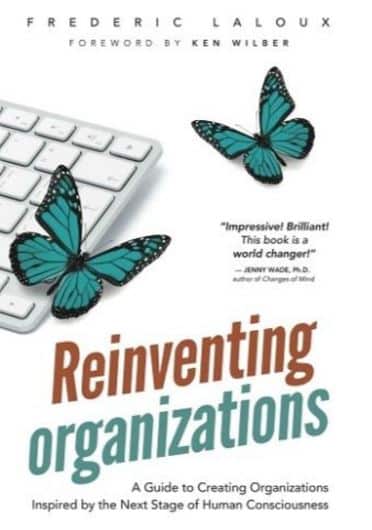“It is an ethical imperative for neighbourhood nurses to make themselves irrelevant.” Jos de Blok
In 2015 I met Jos de Blok, a man who advocates humanity over bureaucracy, and I was absolutely inspired by his extraordinary vision of person centred care in the community. I have been asked by the team at the Alliance, to reflect upon the principles that underpin his work in relation to the Health and Social Care Academy’s rather marvellous Five Provocations. I believe that Jos de Blok’s vision and approach beautifully encompass all 5 of the ‘provocations’ as he elegantly describes in this presentation given to the RSA.
Jos spoke at the QNIS Conference in 2016 and I have had a number of subsequent conversations with him about the work of Buurtzorg (which means neighbourhood care). Since then, pilot projects have been set up across Scotland to explore how the ideas behind the work of Buurtzorg in the Netherlands might fit within a Scottish context, and a great deal of thinking and planning has gone into exploring how this approach might help us enable health and social care integration.
The work is being coordinated by the Living Well in Communities team at Healthcare Improvement Scotland’s Improvement Hub (ihub), working with the Scottish Government and Health and Social Care Partnerships. You can find out all about it on the community site. As well as this, teams of district nurses in other areas are exploring these ideas for themselves, unconnected to the official pilots.
I have attended some of the ihub learning events, and have been keen to hear from those leading the pilots about the joys and the challenges of exploring a different model of working. What is striking is the optimism and passion which working in this way has unleashed in the workforce. There is something incredibly motivating about reconnecting with a sense of purpose; to enable individuals and families to maximise their independence through developing the quality of relationships that connect staff back to their motivation for joining the caring professions in the first place.
However, in some conversations I’ve had, I would suggest that staff are being tripped up by questions and uncertainties which relate to the Dutch health care system being quite different from ours. It is an insurance based system. Patients have a choice of provider and equally providers can state when they do not have capacity to take on more clients. So the conversations return to the question ‘How does that fit within our system?’. Trying to unpick the principles from the practice of Buurtzorg is quite tricky, so I decided to go back to the source.

The principles on which Buurtzorg is based are set out in Frederic Laloux’s book ‘Reinventing Organisations’. Laloux beautifully describes a vision for the future of workplaces and uses Buurtzorg and a range of other enterprises to illustrate this.
He describes the history of workplace culture and uses colours to code the development with a metaphor for each: red (wolf pack), amber (army), orange (machine), green (family) and teal. It is the teal organisation he spends the rest of the book describing and Buurtzorg provides one example. The key characteristics of a teal organisation are:
- Self-organisation
- Wholeness
- Purpose
Whilst these might seem like slightly abstract concepts, the book presents concrete examples of the difference this makes to individuals, teams and workplace culture. In my own thinking about how we can bring neighbourhood care to Scotland, this book has been transformational.
Teal organisations absolutely require every one of the Health and Social Care Academy’s Five Provocations to be in place:
- Courageous leadership – by shifting from management to enabling and coaching, teal organisations create the conditions for everyone to thrive.
- Nurturing transformation – relationships are central to every aspect of the development of a teal organisation.
- Emphasising humanity – by putting individuals and families at the heart of the care, we can create relationships that enable people to flourish. By valuing staff we enable them to bring their whole selves to work.
- Target culture – challenging the target culture is central; we need person centred outcome indicators. The teal model is based on trust.
- Ceding power – self organising teams require support and coaching not management and control.
Jos de Blok and the teams at Buurtzorg have done something incredible, which we must acknowledge and should indeed inspire us. But, let’s not try and copy Buurtzorg like a blueprint, rather let’s take the principles from Frederic Laloux’s work and bring them to community care in Scotland. Let’s empower front-line community teams of nurses and support workers to organise themselves, working with families and neighbourhood volunteers, supported by the wider health and social care teams. Let them rediscover that sense of shared purpose to enable independence wherever that’s appropriate. Most importantly, by liberating teams from the bureaucracy of the systems that constrain them, let them enjoy bringing their whole selves to work, to unleash creativity and rediscover what Laloux describes as soulful work. And let’s call it neighbourhood care, because that’s what it is.
Clare Cable is Chief Executive and Nurse Director of the Queen’s Nursing Institute Scotland, a charity whose purpose is to promote excellence in community nursing to improve the health and wellbeing of the people of Scotland.
Her vision is to release the creativity of nurses to be catalysts for positive change in the communities of Scotland. Clare is an Honorary Professor at Queen Margaret University and a Florence Nightingale Foundation Leadership Scholar.